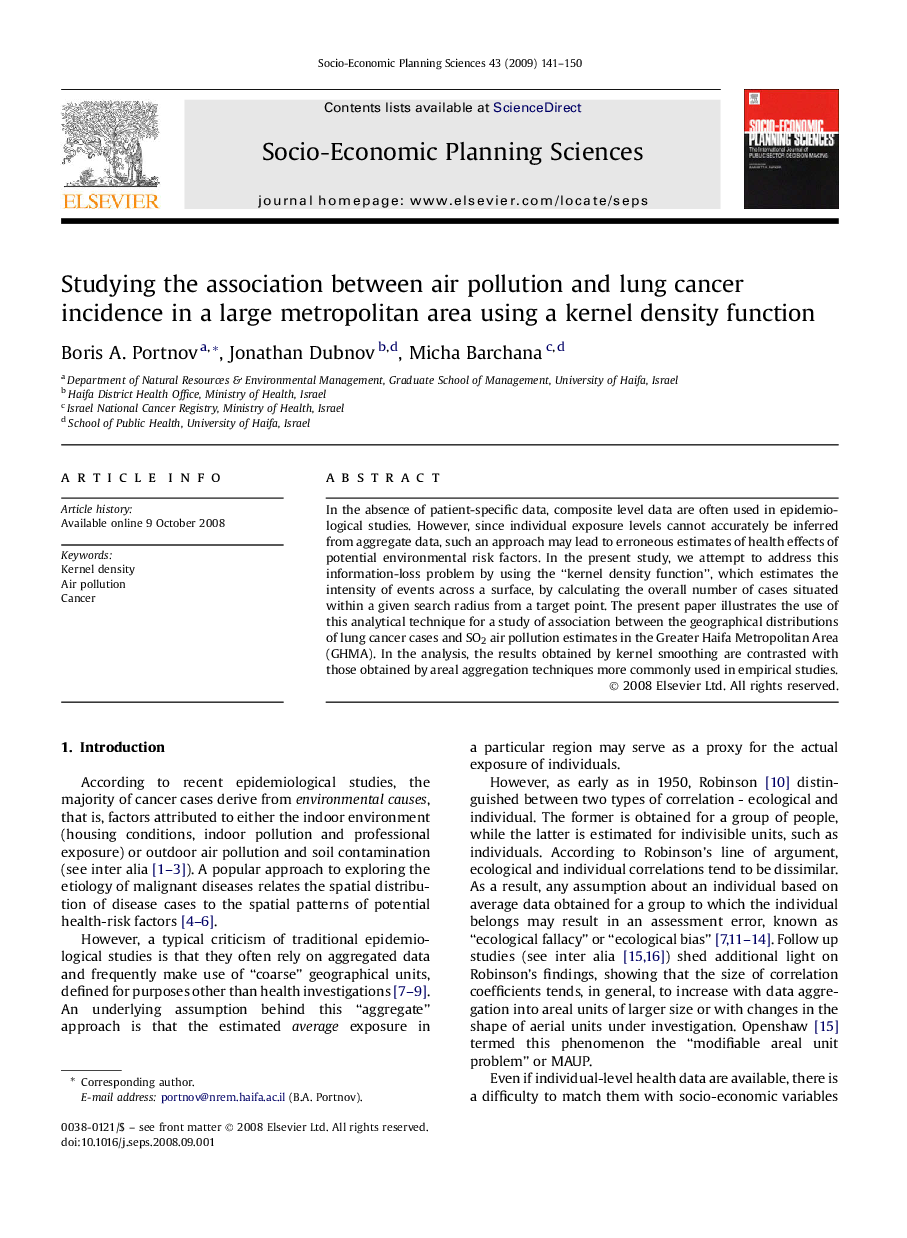| Article ID | Journal | Published Year | Pages | File Type |
|---|---|---|---|---|
| 987499 | Socio-Economic Planning Sciences | 2009 | 10 Pages |
In the absence of patient-specific data, composite level data are often used in epidemiological studies. However, since individual exposure levels cannot accurately be inferred from aggregate data, such an approach may lead to erroneous estimates of health effects of potential environmental risk factors. In the present study, we attempt to address this information-loss problem by using the “kernel density function”, which estimates the intensity of events across a surface, by calculating the overall number of cases situated within a given search radius from a target point. The present paper illustrates the use of this analytical technique for a study of association between the geographical distributions of lung cancer cases and SO2 air pollution estimates in the Greater Haifa Metropolitan Area (GHMA). In the analysis, the results obtained by kernel smoothing are contrasted with those obtained by areal aggregation techniques more commonly used in empirical studies.
